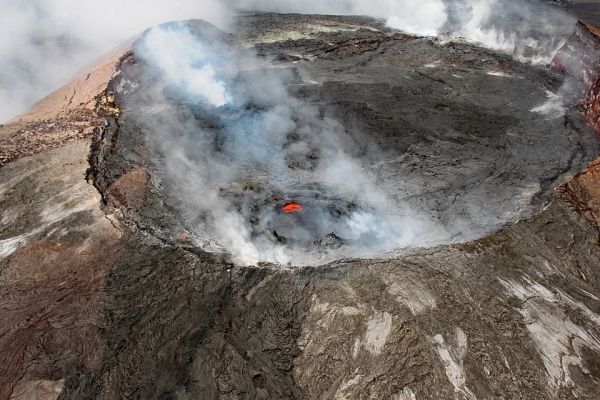Ever since Hawaii’s Kilauea stopped erupting in August 2018, ceasing activity for the first time in 35 years, scientists have been wondering about the volcano’s future. Its similarities to the Hawaiian seamount Lo`ihi might provide some answers, according to Jacqueline Caplan-Auerbach at Western Washington University.
In her presentation at the 2019 SSA Annual Meeting, Caplan-Auerbach, a volcano seismologist, said Lo`ihi’s 1996 eruption has some remarkable parallels to 2018 activity at Kilauea. Lo`ihi is a submarine volcano located about 22 miles off the southwest coast of the island of Hawaii, with its summit about 3000 feet below sea level.
Caplan-Auerbach has studied Lo`ihi since she was a graduate student in 1996, with more recent work at Kilauea, using data from seismic instruments placed on the submarine flanks of both volcanoes.
After the sudden cessation of activity at Kilauea last summer, “it was very apparent to me that there were some very striking similarities between this eruption and what we saw at Lo`ihi in 1996,” she says.
Read more at Seismological Society of America
Photo Credit: tommygbeatty via Pixabay


